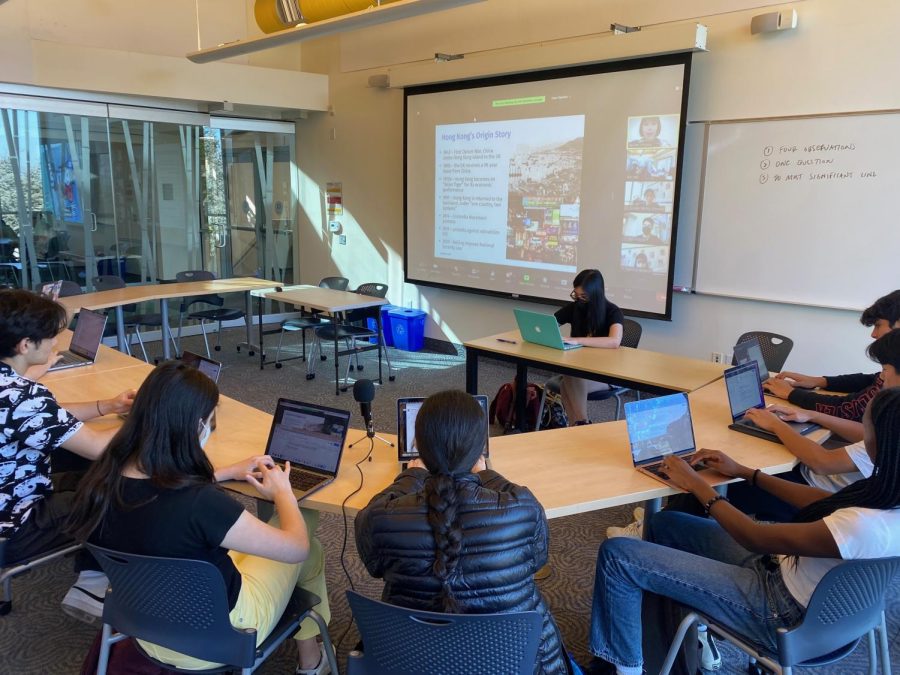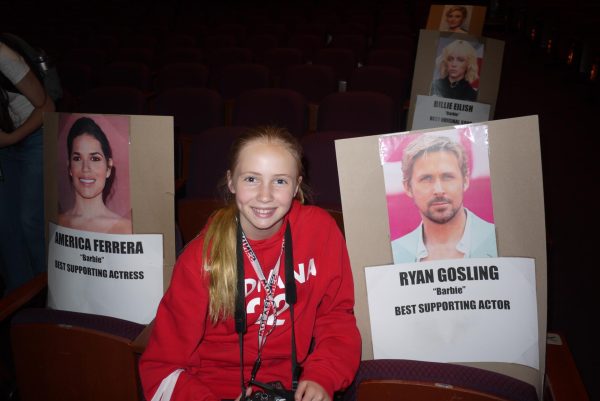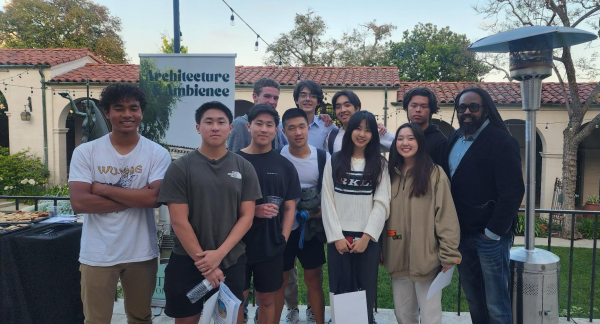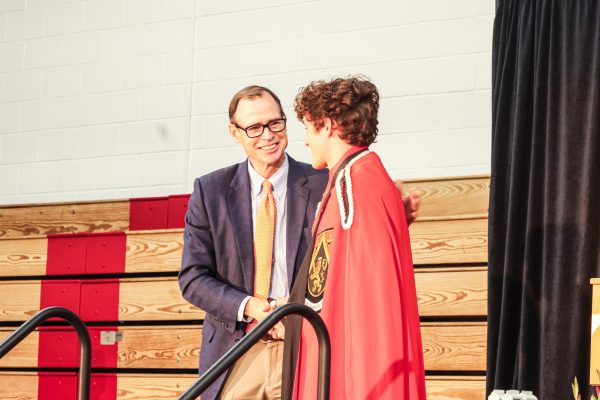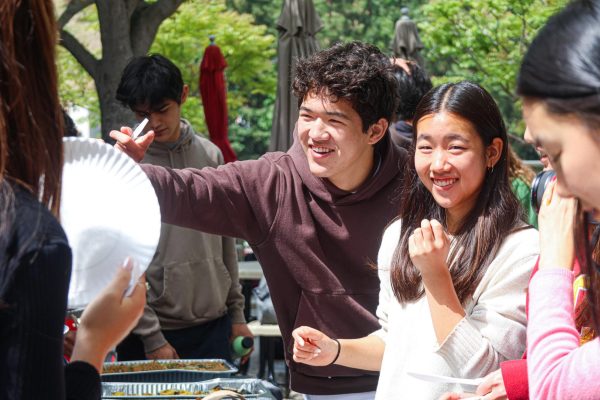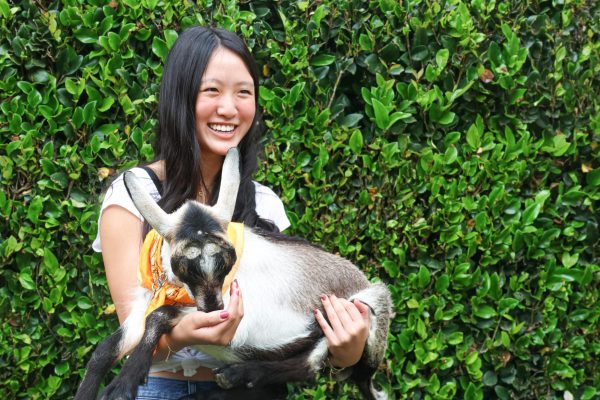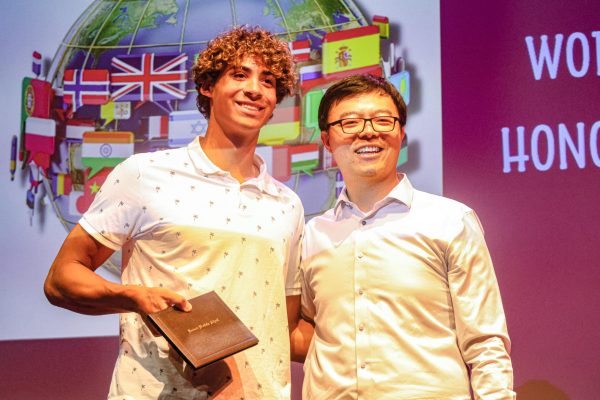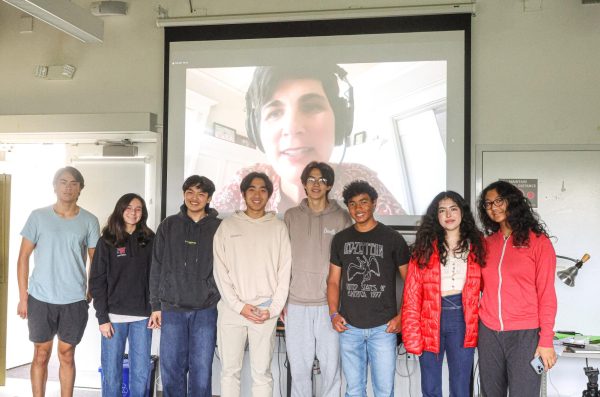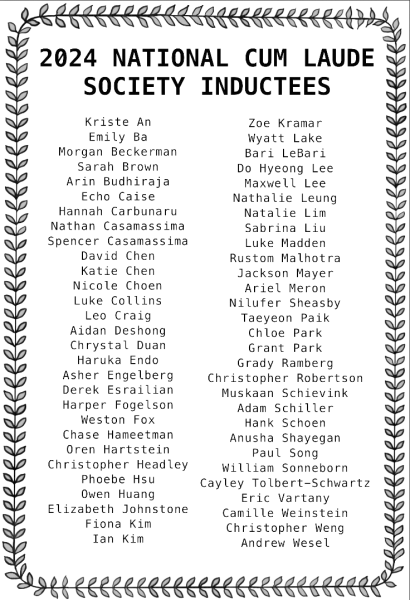Research analyst presents to China Studies class
Students in China Studies: Past, Present, Future listen to Rachel Lietzow’s presentation.
October 4, 2022
Research Analyst Rachel Lietzow spoke to students in the Kutler Center course China Studies: Past, Present, Future on Sep. 28. Lietzow discussed how the relationship between Hong Kong and China has impacted people all over the world. Lietzow practices with the Rhodium Group China, a collective that seeks to report on China’s economic trajectory and global footprint.
The course is open to all Upper School students and aims to understand the rise of modern China through primary sources, case studies and discussions. Lietzow specifically focused on Hong Kong’s origin, language, culture and COVID-19.
China Studies Teacher Bin He said Lietzow provided a different perspective due to her extensive research, which enhanced the class.
“She’s a Hong Kongese person and a scholar focused on China Studies,” He said. “We invited her because we recently talked about what China is from different geographical, political and cultural perspectives. We hoped to bring a different perspective from the guest speaker.”
Nilufer Mistry Sheasby ’24 said she thought Lietzow provided necessary information to the class’s understanding on Hong Kong-mainland China relations..
“It was really interesting to hear an on-the-ground perspective of how Hong Kong has changed post zero-COVID and the National Security Law,” Mistry Sheasby said. “Especially right now, in our era of geopolitics, it’s easy to oversimplify relations and make them black and white. She gave us a really detailed analysis as to why the Chinese government acts the way they do and why the Chinese people feel the way they do. It was all really eye opening.”
Aviv Pilipski ’25 said he enjoyed the opportunity for an open discussion in the class, as opposed to the usual format of a lecture.
“Our class was very discussion-based, it was a different kind of communication,” Pilipski said. “Instead of doing lecturing and slides, I enjoyed being able to communicate and ask questions about issues that we cared about. Especially having someone from outside Harvard-Westlake coming to our class, it gave us another perspective on [the situation].”































